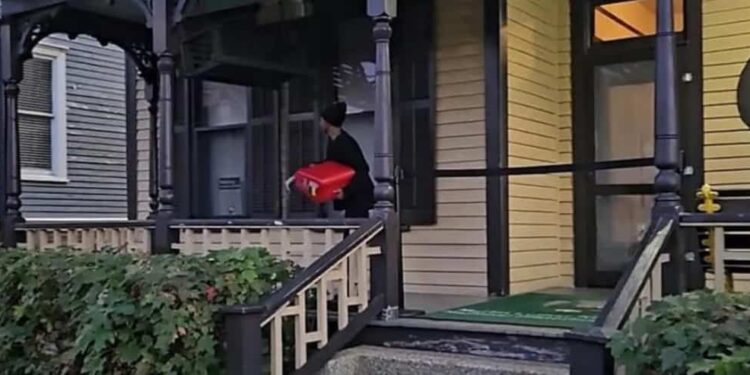On the quiet evening of Thursday, December 7, in Atlanta, a silent but devastating act nearly occurred, threatening to erase a vital symbol of American history. Martin Luther King Jr.’s birthplace, a shrine to the civil rights struggle, was nearly burned to the ground.
This act, perpetrated by an African-American woman, unrealized but with profound implications, offers us a crucial lesson about the fragility of our common history and the shock waves that seemingly isolated actions can cause.
A flame about to light an inferno
In an ideal world, historical monuments are preserved time capsules, telling the stories of those who shaped our present.
Martin Luther King Jr.’s house is not just a collection of boards, bricks and mortar; she is a silent witness to the first chapters of the life of a man whose ideals continue to resonate in our contemporary struggles for equality and justice.
If the flames had engulfed this residence, they would have consumed much more than physical heritage; they would have burned an irreplaceable chapter of American history.
The 26-year-old “arsonist,” Laneisha Shantrice Henderson, is a U.S. Navy veteran.
Screenshot / Normand Lester
In the current context, where racial and political tensions are palpable, such an incident could have acted as a catalyst for latent conflict.
Without knowing the perpetrator of the attack, speculation and outrage could have turned into open conflict, fueled by deep ideological divisions and mutual distrust.
This act could have become a symbol, interpreted and reinterpreted to serve various political agendas, thereby exacerbating existing divisions.
Lessons learned from a disaster averted
The most important lesson from this avoided incident lies in recognizing the interconnectedness of our actions and their consequences.
Every gesture, large or small, intentional or accidental, can have implications that go far beyond the act itself. It reminds us of the importance of individual responsibility in an interconnected world.
Furthermore, this event highlights the importance of protecting our common history. Historic sites, like the Martin Luther King Jr. home, are not just relics of the past; they are pillars for our shared future, reference points that help us navigate the complexities of our present.
Their preservation is essential not only to honor the past, but also to illuminate the future.
Finally, this incident reminds us that in a climate of tension and polarization, vigilance and understanding are essential. We must strive to understand the motivations and circumstances behind the actions of others, seeking to build bridges rather than dig ditches.
In a world where every action has the potential to trigger a butterfly effect, caution, empathy and dialogue are more important than ever.
As we move forward in a complex and interconnected world, the example of this failed incident should serve as a catalyst for deeper reflection on our actions and their repercussions in the fabric of our societies.



